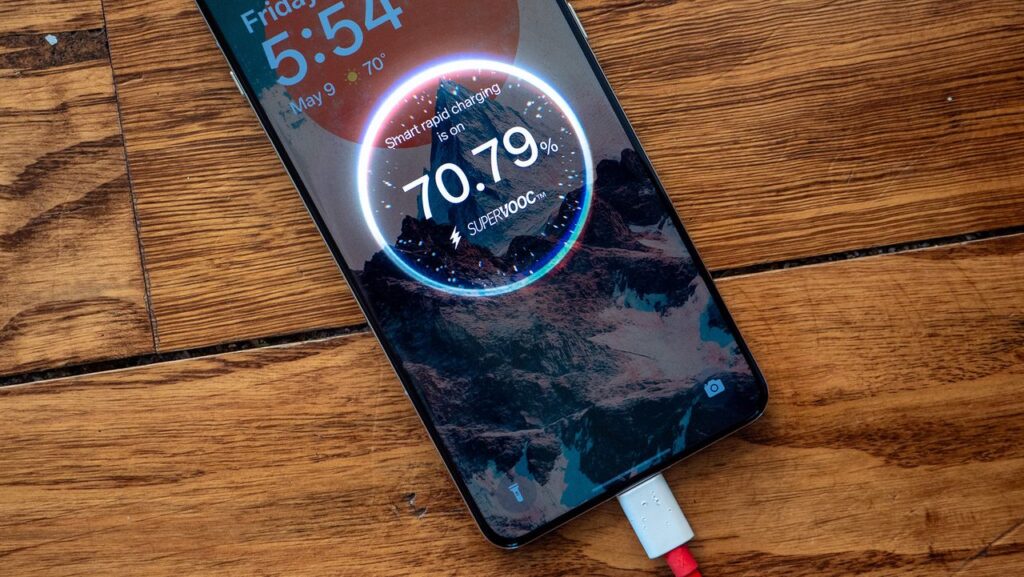For years, the whispers have echoed through tech forums and gadget review sections: “Does fast charging kill your battery?” It’s a question that’s plagued smartphone users since the dawn of rapid charging technology. Are we trading convenience for long-term battery health? The answer, it turns out, might be less scary than we thought, thanks to one dedicated YouTuber who finally decided to put the debate to the ultimate test.
The Two-Year Fast Charging Gauntlet: A YouTuber’s Epic Experiment
The YouTube channel in question, often lauded for its rigorous testing and data-driven approach, embarked on an ambitious project. They acquired 40 identical smartphones, carefully controlling for variables like usage patterns and ambient temperature. The phones were then subjected to different charging regimes: some exclusively using standard charging, others using various fast charging protocols (like Quick Charge, USB Power Delivery, and proprietary solutions from different manufacturers), and a control group.
The experiment spanned two long years, diligently tracking battery capacity, charging speeds, and overall performance. The aim was simple: to definitively determine if, and to what extent, fast charging impacts the long-term health of smartphone batteries. The data collected was extensive, providing a level of detail rarely seen in consumer electronics testing. This wasn’t just anecdotal evidence; it was a scientific approach to a question that has lingered for far too long.
Debunking the Fast Charging Myths: What the Data Revealed
So, what were the findings? The results were surprisingly nuanced. While the study did show a measurable difference in battery degradation between standard and fast-charged phones, the difference wasn’t as dramatic as many feared. Fast charging does contribute to faster battery degradation, but the impact is often marginal, especially within the first year or two of smartphone ownership.
The key takeaway is that the trade-off between convenience and battery health is often worth it for most users. While a phone charged exclusively with slow charging might retain a slightly higher battery capacity after two years, the difference is often only a few percentage points. For many, the hours saved by fast charging outweigh the minimal long-term degradation.
The Importance of Heat Management
One crucial factor highlighted by the study was the role of heat. Excessive heat is a known enemy of battery health, and fast charging can generate more heat than standard charging. However, modern smartphones are equipped with sophisticated thermal management systems designed to mitigate this risk. These systems throttle charging speeds when temperatures get too high, protecting the battery from excessive heat damage.
The YouTuber’s experiment also revealed that the quality of the charger and cable plays a significant role. Using high-quality, certified chargers and cables ensures that the charging process is more efficient and generates less heat. Cheap, uncertified chargers can be a significant risk, potentially damaging both the battery and the phone itself.
Beyond the Headlines: Nuances and Considerations
While the study provides valuable insights, it’s important to acknowledge some nuances. Battery degradation is a complex process influenced by various factors beyond charging habits. Usage patterns, ambient temperature, and the overall quality of the battery itself all play a role. Someone who constantly streams videos at maximum brightness in a hot environment will likely experience faster battery degradation regardless of their charging habits.
Furthermore, the study focused on a specific set of smartphones and charging protocols. While the results are likely broadly applicable, they may not perfectly generalize to every single device on the market. Different phones have different battery chemistries and thermal management systems, which can influence the rate of battery degradation. For instance, some older phones may not have the same level of thermal protection as newer models, making them more susceptible to heat damage from fast charging.
It’s also worth noting that battery technology is constantly evolving. Newer batteries are often more resistant to degradation from fast charging, and manufacturers are continuously improving thermal management systems. As technology advances, the impact of fast charging on battery health may become even less significant.
The Verdict: Fast Charging is (Probably) Okay
The YouTuber’s extensive test provides compelling evidence that fast charging, while not entirely without impact, is generally safe for smartphone batteries. The convenience it offers often outweighs the minimal long-term degradation. The key is to use high-quality chargers and cables, avoid extreme temperatures, and be mindful of overall usage patterns.
So, can you finally put your fast charging anxieties to rest? Probably. While obsessive battery care might squeeze out a few extra months of peak performance, for most users, the benefits of fast charging outweigh the potential drawbacks. Embrace the convenience, and enjoy your quickly charged phone. Just remember to invest in quality accessories and avoid leaving your phone baking in the sun!
